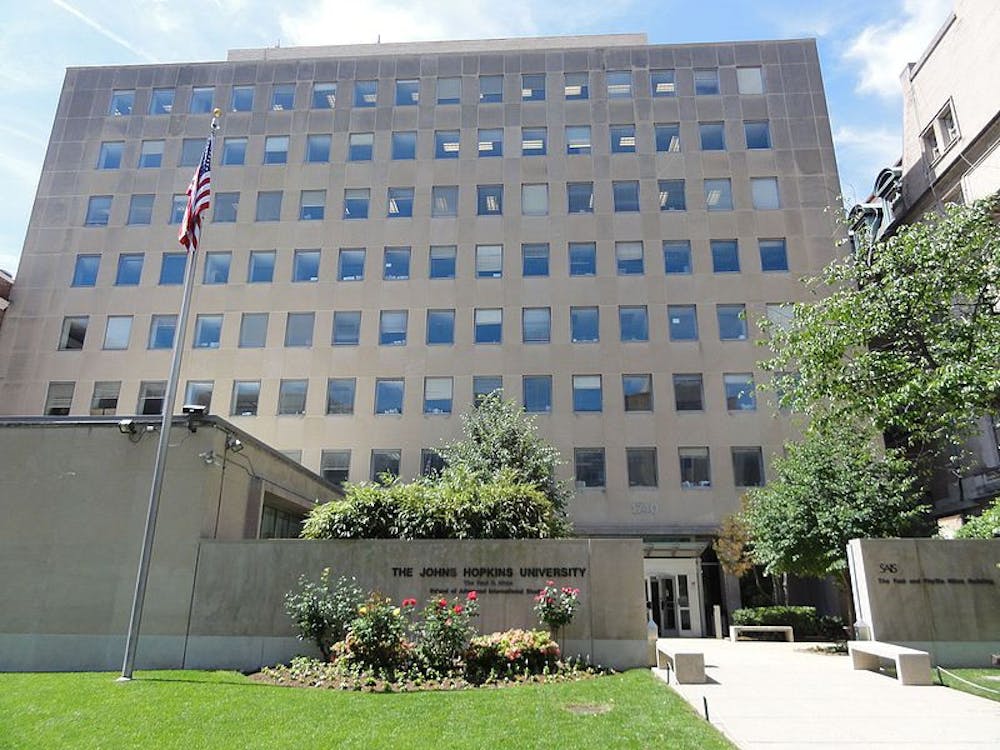The Henry A. Kissinger Center for Global Affairs at the Hopkins School of Advanced International Studies (SAIS) held a virtual event titled “Is It Time for a Grand Strategy of Restraint? A Debate” on Thursday, Sept. 17. The debate was co-hosted by the Hopkins chapter of the Alexander Hamilton Society (AHS), a national, non-partisan organization that aims to increase student conversations about foreign policy and national security.
Grand strategy refers to the long-term strategy of a nation to further its global interests. American grand strategy has evolved throughout history as conversations on the issue continue to adapt to changing geopolitical and military realities.
The event featured Michael Mazarr, a senior political scientist at the RAND Corporation, and Massachusetts Institute of Technology’s Ford International Professor of Political Science Barry Posen. Henry A. Kissinger Distinguished Professor of Global Affairs Hal Brands of SAIS acted as the moderator.
During the debate, Posen stressed the need for a realist approach to international politics. He argued that American foreign policy should adopt narrow priorities: restricting manufacturing and access to nuclear weapons, preventing the hegemony of any one state and monitoring non-state actors.
“The U.S. has a wealth of options. We’re unconquerable militarily,“ he said. “But it is inimical to infantilize our allies [by seeking hegemony].”
Posen explained that the U.S. currently faces challenges regarding the costs of continued military presence in the Middle East. He also pointed out that globalization is chipping away at America’s economic advantage, which will affect its grand strategy.
Additionally, Posen questioned how domestic politics will influence foreign policy in the near future, especially concerning racial tensions.
“There is an apparent change in salience of race domestically. If this is true, then can we keep killing people of color abroad?” he said.
Mazarr agreed on the need to put constraints on American foreign policy but criticized Posen’s focus on American military engagement overseas.
“I agree we should constrain... but it should be about something more fundamental than ending endless wars,” he said. “American security is global security — some places [where] we have war protect us back home.”
Mazarr further defended America’s decisions to enter several wars following World War II. According to him, in several countries, the U.S. helped launch successful democratic governments while acting as a “reluctant intervener,“ simultaneously protecting American interests and human rights.
He stressed that the U.S. needs to be more discriminative when deciding which wars to partake in. However, he also stated that he opposed withdrawing American troops overseas, noting that the presence of troops bears significant weight on actions of other countries.
“Let’s not shatter global expectations,“ Mazarr said. “The world is entering a period of uncertainty.”
Posen argued that troop removal should happen as a gradual process that takes over a decade.
Senior and AHS President Nina Tophoff explained that the Kissinger Center reached out to AHS to host the event. She noted that, given the upcoming election, the group was glad to encourage discussions about America’s grand strategy.
“Foreign policy is a big part of every election, and we think it's important that people are fully informed, especially ahead of the election,” she said.





